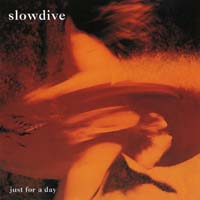2022-11-01
The Musical Odyssey of Sonny Rollins
Jazz music has long been recognized as a genre that bridges cultures and traditions, and one of its most versatile practitioners was the great Sonny Rollins. Born on September 7, 1930, in New York City, he started his career in the 1950s and quickly became known for his virtuosity on the tenor saxophone. Over the years, Rollins' music has been influenced by a wide range of styles, including bebop, swing, and Latin jazz, and he has collaborated with some of the most iconic musicians of the 20th century. In this article, we'll take a closer look at the life and work of this legendary musician.
Sonny Rollins's journey to become one of the most acclaimed jazz musicians began in Harlem, where he grew up listening to swing and big band music. His parents were both from the Virgin Islands, and they encouraged him to play the piano, but he eventually switched to the saxophone and studied at the Juilliard School of Music. Rollins soon began playing with other aspiring jazz musicians, including Jackie McLean and Miles Davis, and recorded his first album, Sonny Rollins Quartet, in 1951.
Rollins's style continued to evolve, and by the early 1960s, he was exploring the avant-garde and experimenting with new sounds and techniques. His iconic album The Bridge, released in 1962, is widely regarded as one of his greatest works and features collaborations with Jim Hall, Bob Cranshaw, and Ben Riley. On the album, Rollins pushes the boundaries of traditional jazz and incorporates elements of blues, funk, and even classical music.
In the decades that followed, Rollins continued to release critically acclaimed albums, such as Saxophone Colossus, Way Out West, and The Freedom Suite. He also collaborated with other jazz luminaries, including Art Blakey, John Coltrane, and Thelonious Monk. One of his most famous compositions is St. Thomas, a calypso-infused tune that showcases his rhythmic dexterity and melodic sensibility.
Rollins's musical style is characterized by his virtuosity on the saxophone, his ability to improvise and play with different tonalities and rhythms, and his willingness to take risks and experiment with new sounds. He has always been a restless explorer of music, and his contributions to jazz have been recognized with numerous accolades, including a Lifetime Achievement Grammy Award in 2004.
Sonny Rollins's musical journey is a testament to the transformative power of jazz. His artistry has transcended genres and boundaries, and his contributions to the evolution of jazz have been immeasurable. Rollins has influenced generations of jazz musicians with his innovative approach to the saxophone, his ability to create memorable melodies, and his commitment to pushing the boundaries of the genre. As we celebrate his life and work, we are reminded of the transformative power of music, and the unlimited potential of human creativity. So, put on your favorite Sonny Rollins on vinyl or stream his music on your preferred app, sit back, and immerse yourself in the sounds of one of the most versatile and transcendent jazz musicians of the 20th century.
Sonny Rollins's journey to become one of the most acclaimed jazz musicians began in Harlem, where he grew up listening to swing and big band music. His parents were both from the Virgin Islands, and they encouraged him to play the piano, but he eventually switched to the saxophone and studied at the Juilliard School of Music. Rollins soon began playing with other aspiring jazz musicians, including Jackie McLean and Miles Davis, and recorded his first album, Sonny Rollins Quartet, in 1951.
Rollins's style continued to evolve, and by the early 1960s, he was exploring the avant-garde and experimenting with new sounds and techniques. His iconic album The Bridge, released in 1962, is widely regarded as one of his greatest works and features collaborations with Jim Hall, Bob Cranshaw, and Ben Riley. On the album, Rollins pushes the boundaries of traditional jazz and incorporates elements of blues, funk, and even classical music.
In the decades that followed, Rollins continued to release critically acclaimed albums, such as Saxophone Colossus, Way Out West, and The Freedom Suite. He also collaborated with other jazz luminaries, including Art Blakey, John Coltrane, and Thelonious Monk. One of his most famous compositions is St. Thomas, a calypso-infused tune that showcases his rhythmic dexterity and melodic sensibility.
Rollins's musical style is characterized by his virtuosity on the saxophone, his ability to improvise and play with different tonalities and rhythms, and his willingness to take risks and experiment with new sounds. He has always been a restless explorer of music, and his contributions to jazz have been recognized with numerous accolades, including a Lifetime Achievement Grammy Award in 2004.
Sonny Rollins's musical journey is a testament to the transformative power of jazz. His artistry has transcended genres and boundaries, and his contributions to the evolution of jazz have been immeasurable. Rollins has influenced generations of jazz musicians with his innovative approach to the saxophone, his ability to create memorable melodies, and his commitment to pushing the boundaries of the genre. As we celebrate his life and work, we are reminded of the transformative power of music, and the unlimited potential of human creativity. So, put on your favorite Sonny Rollins on vinyl or stream his music on your preferred app, sit back, and immerse yourself in the sounds of one of the most versatile and transcendent jazz musicians of the 20th century.
Tag: Sonny Rollins, musical biography, best songs, playlist
2022-11-01
Sivan Perwer - The Musical Biography of a Kurdish Legend
If you're a fan of world music, then you've probably heard of Sivan Perwer - the Kurdish musician and cultural icon. For those who haven't, this blog is the perfect introduction to the life and work of this legendary artist...read more
2022-01-01
The Controversial Rise of Revenge in the Music Industry
Revenge is a world-renowned artist who has left an indelible mark on the music industry. With revolutionary songs that merge multiple genres and catchy lyrics, it's not hard to see why she is so popular – but this success isn't without its detractors...read more
2022-01-01
The Legacy of Sinead O'Connor: A Look at the Iconic Musician
Sinead O'connor is an Irish singer-songwriter, musician and activist who has had a long and turbulent career in the music industry. Her emotive delivery of personal lyrics, with her powerful voice and signature look – bright red hair often cut close to her scalp - have become iconic aspects of musical history since she burst onto the scene in 1990 with her single Nothing Compares 2 U...read more
2022-11-01
Slowdive - A Musical Biography of the Shoegaze Legends
Shoegaze was a unique subgenre that originated in the UK in the late 1980s, characterized by ethereal guitar sounds, dreamy melodies, and introspective lyrics. One of the key players in this scene was Slowdive, a quintet hailing from Reading, Berkshire...read more
2023-09-27
An Honest Review of At the Gates' Discography
If you're a fan of At the Gates, we're guessing that you think their music is perfect. After all, why wouldn't it be? The band writes great songs and puts on amazing live shows filled with passionate energy...read more
SUGGESTED PLAYLISTS








